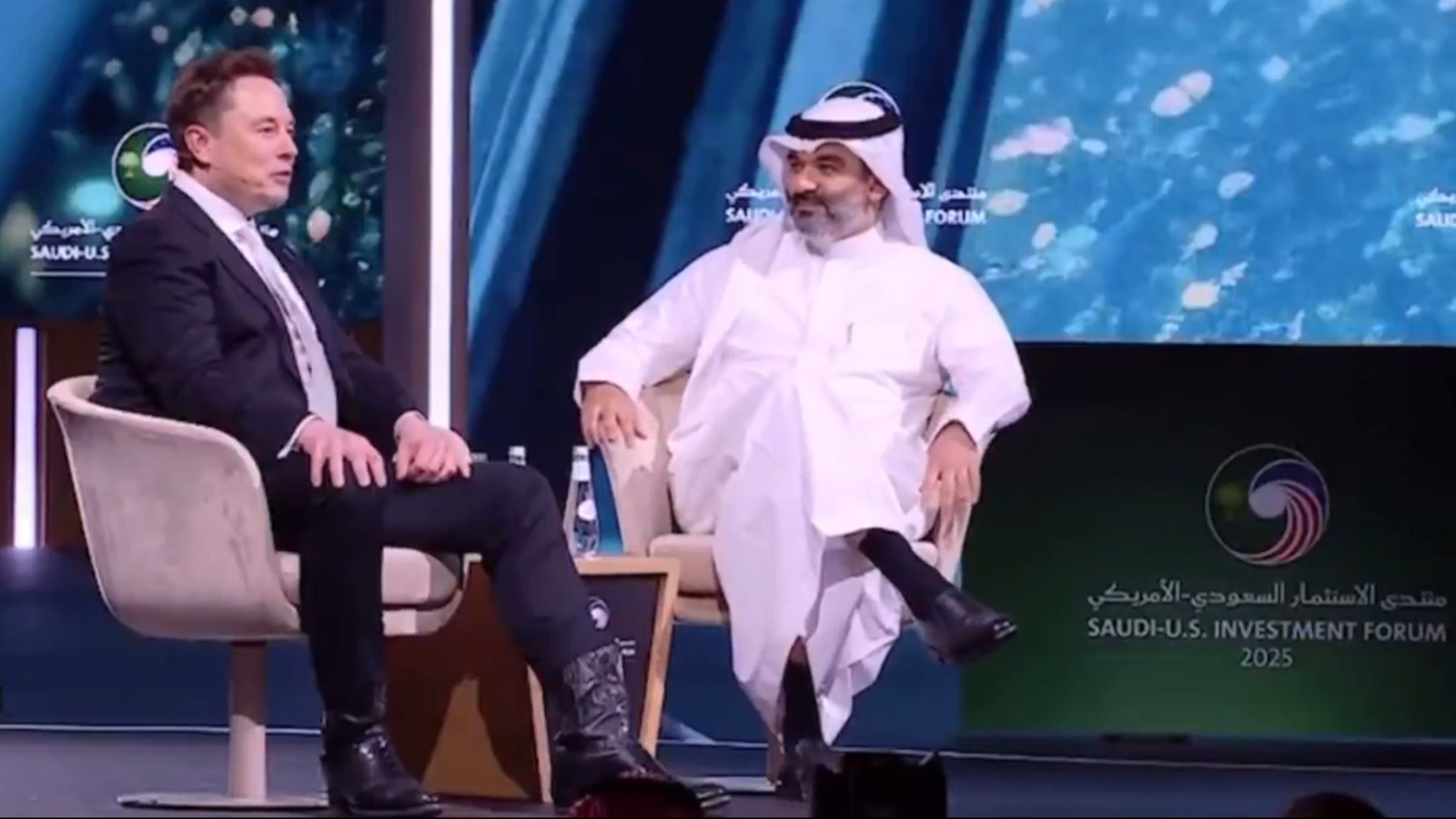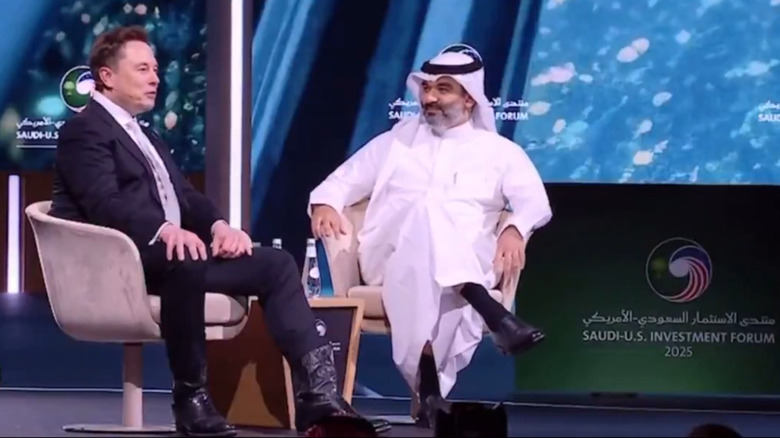U.S. President Donald Trump used the Saudi-U.S. Investment Forum this week as a springboard for announcing allegedly the single largest arms deal in history, according to MSNBC reporting, as he agreed to sell $142 Billion worth of American drones, manned aircraft, missiles, and “advanced precision kill weapon systems.” Tagging along with Donald Trump to the kingdom was the president’s single largest campaign donor, “Special Government Employee” and head of the Department of Government Efficiency, Elon Musk. Musk confirmed that he would be striking major deals with Saudi for all of his companies, including approval for SpaceX’s Starlink to provide monitoring systems for the kingdom’s aviation and maritime needs. Elon’s investment in Trump’s presidential campaign seems to be seriously paying off for the South African immigrant billionaire.
Apparently Musk led a private demonstration of Tesla’s as-yet-unreleased Optimus robots for President Trump and Crown Prince Mohammed Bin Salman, in which the robot—likely tele-operated by a person—performed “the Trump dance” set to the President’s favorite song, YMCA. Musk also pitched Bin Salman on bringing Tesla’s Robotaxis to Saudi at some undisclosed point in the future. Before pivoting to his artificial intelligence company, Musk halted the discussion to bloviate about building Boring Company tunnels that can “essentially create like a worm hole or a warp tunnel from one part of a city to another and alleviate traffic.” It is important to note that Starlink is the only thing promised by Musk in this chat that has made it past the vaporware phase.
What does Saudi get out of this?
Saudi, when it isn’t building weird future cities, sportswashing its reputation, and allegedly murdering journalists [need a source], has set a goal of shifting the country’s wealth generation from a petrochemical-based economy to one of technological advancement by the end of the decade. Elon, as one of Donald Trump’s closest surrogates and the wealthiest man in the world, brings a level of power that even Saudi itself can’t muster. A close relationship with U.S. power brokers allows Saudi stronger support in its contretemps with Iran and its various proxy militias throughout the region. Saudi wants support from the U.S. as it transitions away from petroleum to a nuclear power source, possibly leading to Saudi enriching uranium on its own for commercial power. It’s also a major opportunity for Saudi to employ techwashing tactics, projecting itself as a modernized and forward-thinking nation, in addition to the proven-successful sportswashing endeavors.
Given the recent American about-face on human rights, it seems the U.S. and Saudi governments are more closely aligned than ever.



